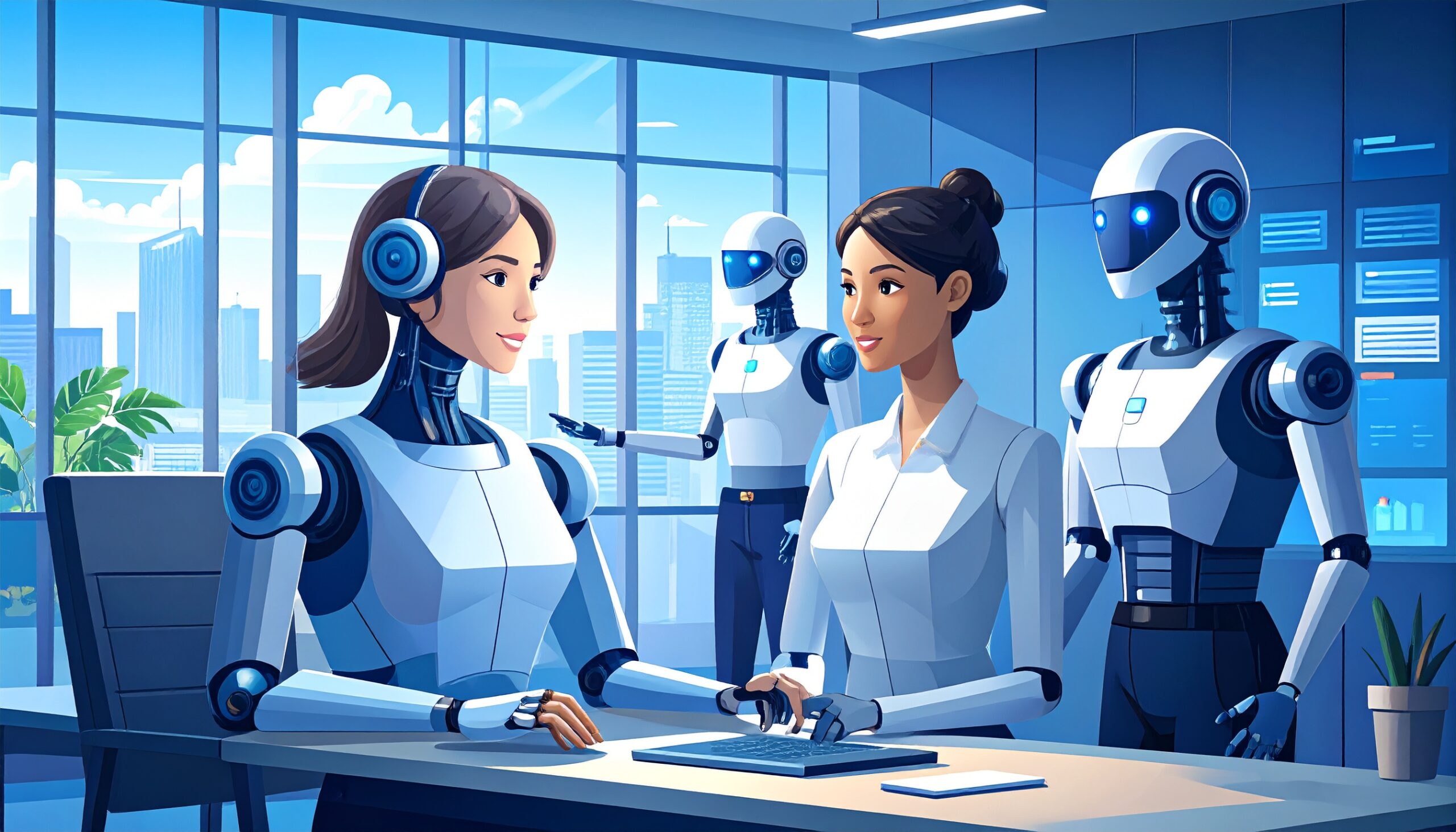Artificial Intelligence (AI) has rapidly evolved over the last decade, moving from simple automation tools to advanced systems capable of reasoning, planning, and even collaborating with humans. At the forefront of this evolution are AI agents—autonomous software entities designed to perform tasks, make decisions, and adapt to changing circumstances on their own.
What Are AI Agents?
AI agents are programs that sense their environment, process information, and take action to achieve specific goals. Unlike traditional software that follows fixed instructions, agents can learn, adapt, and respond flexibly. These systems often use technologies like natural language processing (NLP), machine learning, and reinforcement learning to operate in dynamic settings.
Types of AI Agents
- Reactive Agents – Respond to immediate inputs with no memory of past interactions. For example, a chatbot that answers simple FAQs.
- Deliberative Agents – Use reasoning and internal models to plan actions, such as AI scheduling assistants.
- Learning Agents – Improve performance over time by analyzing feedback and results, common in recommendation systems.
- Multi-Agent Systems – Groups of agents working together, simulating societies or managing complex tasks like traffic optimization.
Real-World Applications
AI agents are already part of everyday life:
- Customer Support – Virtual assistants that handle inquiries 24/7 and escalate issues to humans when necessary.
- Healthcare – Agents that monitor patient data, detect anomalies, and recommend treatments.
- Business Operations – Automating workflows, from supply chain management to financial analysis.
- Smart Homes – Personal assistants like Alexa or Google Home that manage schedules, control appliances, and provide information.
- Creative Fields – Tools that help generate design concepts, brainstorm marketing ideas, and even produce music or artwork.
Benefits of AI Agents
- Efficiency – Automate repetitive work, freeing humans for higher-level thinking.
- Scalability – Handle massive amounts of data and interactions simultaneously.
- Personalization – Adapt to individual users, creating tailored experiences.
- 24/7 Availability – Work nonstop without fatigue.
Challenges and Concerns
While promising, AI agents raise important issues:
- Bias and Fairness – If trained on flawed data, agents can make biased decisions.
- Transparency – Complex AI reasoning can be difficult to explain or audit.
- Security – Agents that access sensitive information must be protected from misuse.
- Job Displacement – Widespread automation could reshape the workforce, requiring new skills and roles.
The Future of AI Agents
Looking ahead, AI agents will likely become more autonomous and collaborative. Future innovations may include agents that negotiate on behalf of humans, coordinate large-scale emergency responses, or act as personal digital twins—representing our preferences and values in online interactions. Crucially, their development will require ongoing discussions about ethics, governance, and human-centered design.

